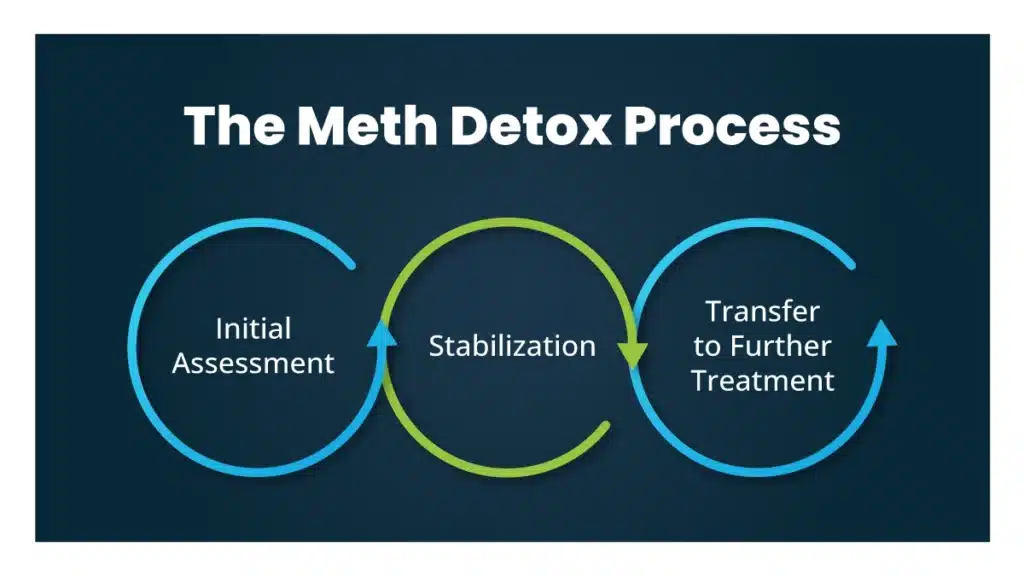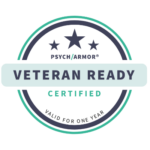Withdrawal from meth, also known as crystal meth, is a challenging but crucial step toward recovery for individuals facing meth addiction. This process involves the body readjusting to life without the drug, leading to various withdrawal symptoms.
Detox, a vital component in addressing substance use disorders, helps manage these symptoms and marks the beginning of the journey to sobriety. Seeking assistance and understanding the impact of methamphetamines on the brain are critical elements. The detox process is vital in providing practical support for those navigating the complexities of meth withdrawals and substance abuse.
Key Takeaways
Detox is crucial for recovery, managing symptoms, understanding the impact on the brain, and seeking assistance for support. Here’s what you need to know:
- Address addiction at the earliest signs for a better chance of lasting recovery.
- Diverse treatment approaches help patients recover from the root of the addiction instead of the symptoms.
- Holistic meth detox addresses the physical and mental aspects of addiction, setting the stage for lasting recovery.
The Haven Detox-South Florida is here to help you overcome meth addiction. Contact us today at (561) 328-8627 for more information.
Insights into Meth Addiction
Regular meth use can lead to harmful effects on both physical and mental health. Addiction develops from a cycle of tolerance and dependence. Tolerance is when more of the substance is needed to produce the desired effect. Dependence is when the body relies on the substance in order to survive. Meth use disorder not only impacts individuals physically but can also trigger severe mental effects.
People caught in the web of meth addiction may experience heightened suicidal thoughts, further emphasizing the urgent need to address the addiction. By unraveling the complexities of meth abuse, individuals can take the first steps toward recovery and break free from the clutches of substance dependency.
Detox in Meth Addiction Treatment
Detox is the first step in meth addiction treatment. It helps people get rid of the harmful substances in their bodies. This process deals with the physical parts of addiction, stopping the cycle of using meth and making rehabilitation more focused and effective. The goal of detox is stabilization.
Breaking Free from Physical Dependence
Going through meth detox with professionals guiding you helps break the physical chains of dependence. Detox creates a supportive place where doctors can monitor and ease withdrawal symptoms, making the transition to the next stages of addiction treatment safer and more comfortable.
Preparing for Full Recovery
Detox doesn’t just deal with the immediate physical effects of meth addiction. It also gets you ready for lasting recovery. Addiction is not only physical; it is mental, too. By removing the physical dependency, detox opens the patient up for further therapy, counseling, treatment, and support programs.
Detox is a vital part of the overall approach to treating meth addiction. It sets the stage for a healthier life without substances.
The Spectrum of Symptoms in Meth Recovery
Methamphetamine withdrawal brings forth a spectrum of symptoms that vary in intensity and duration. Understanding these symptoms is crucial for individuals navigating the recovery process.
Physical Symptoms
Crystal meth withdrawal often involves physical symptoms such as intense cravings, reflecting the body’s adjustment to the absence of addictive stimulants. Individuals may experience lethargy as the recovery process unfolds and the physical dependence on methamphetamines diminishes. While the physical symptoms can be uncomfortable, it’s important to note that they are seldom life-threatening.
Behavioral Symptoms
Behavioral symptoms encompass changes in actions and reactions during withdrawal. The addictive nature of stimulants like methamphetamines can lead to restlessness and irritability. If withdrawal occurs outside a treatment facility, these symptoms can lead a person to relapse. Their behavior may reflect the mental health challenges they are grappling with during this time.
Addressing these behavioral symptoms is integral to a successful recovery as individuals navigate the chemical and mental changes associated with prolonged methamphetamine use. Understanding and managing these symptoms is vital to a comprehensive approach to meth addiction recovery.
Psychological Symptoms
On the psychological front, meth withdrawal can give rise to severe depression and mental health challenges. Euphoric feelings, once induced by methamphetamine use, may be replaced by a profound low as the brain no longer has access to the stimulant it has come to rely on.
Suicidal thoughts may also emerge, emphasizing the critical need for professional support during this vulnerable phase. Recognizing and addressing the interplay of chemicals in the brain is essential in managing the mental illnesses that can accompany the withdrawal process.
The Meth Detox Process

Meth detox is a crucial step in overcoming addiction. It involves several stages, starting with an initial assessment, moving to stabilization, and finally, transferring individuals to further treatment.
Initial Assessment
The meth detox journey begins with an initial assessment, where medical staff evaluates the individual’s health and the severity of their meth addiction. This step is crucial in developing personalized treatment plans that cater to the specific needs of the person seeking help. The assessment sets the stage for detoxification, guiding the medical team in providing the most appropriate care.
Stabilization
Once the initial assessment is complete, the next step is stabilization. During this phase, medical supervision is paramount. The acute phase of meth detoxification may involve managing withdrawal symptoms, such as cravings and fatigue, to ensure the person stops using meth safely. This phase often includes the use of medical interventions to address any health problems worsened by the highly addictive nature of the drug.
Transfer to Further Treatment
After stabilization, individuals may be transferred to further treatment, such as a residential rehab program. Professional help and support groups become integral during this transition.
Treatment options may include behavioral therapies such as cognitive-behavioral therapy, which plays a crucial role in addressing the psychological aspects of meth addiction. These therapies aim to modify harmful thought patterns and behaviors associated with the use of methamphetamines.
Approaches to Meth Detox
Choosing the right approach to detox is crucial for a safe and effective recovery from meth addiction.
Medical Detox
Medical detox involves the expertise of medical professionals in treating meth withdrawal symptoms. In specialized treatment facilities, patients receive medical care and medications to manage symptoms like mood swings and cravings.
The United States sees medical detox as a standard and essential first stage in addressing the highly addictive drug crystal meth. This approach ensures a safe environment for those dealing with prolonged meth use.
Holistic Detox
Holistic detox considers the whole person. Beyond addressing symptoms, it looks at the general meth withdrawal timeline and the impact of long-term meth use. In addition to medical care, holistic detox incorporates NAD IV therapy, family therapy, and outpatient rehab for comprehensive support.
Common meth withdrawal symptoms are addressed not just individually but as part of a broader strategy for lasting recovery. This approach recognizes the importance of family members and others in providing additional treatment and support for those facing meth addiction.
Detox as a Foundation for Lasting Recovery
Detoxification plays a pivotal role in the lasting recovery journey, serving as a foundational step toward breaking free from the clutches of substance abuse. By systematically removing the harmful substances from the body, detox establishes a clean slate for individuals seeking a fresh start in their recovery process.
The impact of detox extends beyond physical health, providing a crucial reset for the body and the mind. The detox phase addresses the immediate symptoms of meth withdrawal, including cravings and mood swings.
It allows individuals to regain control over their thoughts and behaviors. This dual approach, targeting physical and psychological aspects, sets the stage for a more comprehensive and sustainable recovery.
Get Help
If you’re suffering from alcoholism, getting help as early as possible is essential. Alcoholism is a severe illness that can lead to many problems. Getting help as early as possible can significantly improve your chances of recovery. Call us to get started with treatment.
Our resources are available to help you overcome your drinking habits, including Alcoholics Anonymous, among other evidence-based therapies and innovative treatments proven by medical science to effectively manage AUD (alcohol use disorder). Our admissions counselors can help you learn more about the disease and how to keep it out of your life. Contact us confidentially today.

Reclaim Your Life at The Haven Detox-South Florida
Embark on a transformative journey at The Haven Detox-South Florida, breaking free from the cycle of substance addiction. We are here to help guide you towards lasting recovery.
Our comprehensive services include specialized meth addiction treatment, providing a supportive environment to address the unique challenges you face. Experience personalized detox and residential rehab designed for your well-being, paving the way for a healthier future. Explore innovative IV therapy as part of our holistic approach to enhance recovery.
Don’t feel alone in this battle of addiction. Get in touch with our team by calling us at (561) 328-8627 today.
Frequently Asked Questions
What are the common symptoms of meth withdrawal?
Common symptoms of meth withdrawal include fatigue, increased appetite, vivid dreams, and intense cravings. Emotional challenges such as depression, anxiety, and mood swings are prevalent. Physical symptoms may include tremors, sweating, and difficulty concentrating. These symptoms collectively make meth withdrawal a challenging experience.
How long does withdrawal from meth last?
The duration of meth withdrawal varies but typically spans several weeks. In the initial days, intense cravings and fatigue are common.
As time progresses, symptoms gradually subside, with emotional and psychological aspects persisting for an extended period—a comprehensive recovery plan, including therapy and support, aids in managing the challenges associated with withdrawal.
Can methamphetamine withdrawal cause seizures?
While seizures are rare during methamphetamine withdrawal, they are not impossible. Factors such as prolonged and heavy meth use may increase the risk.
Seizures can be a severe manifestation of withdrawal, underscoring the importance of seeking professional guidance during the detox process. Medical supervision and tailored treatment plans can help mitigate potential risks and ensure a safer withdrawal experience.








